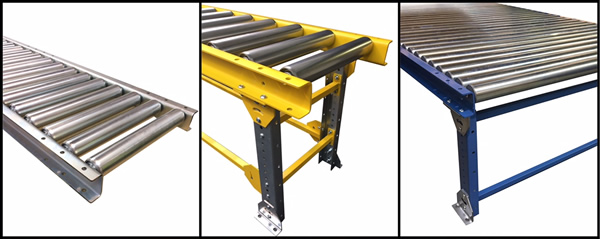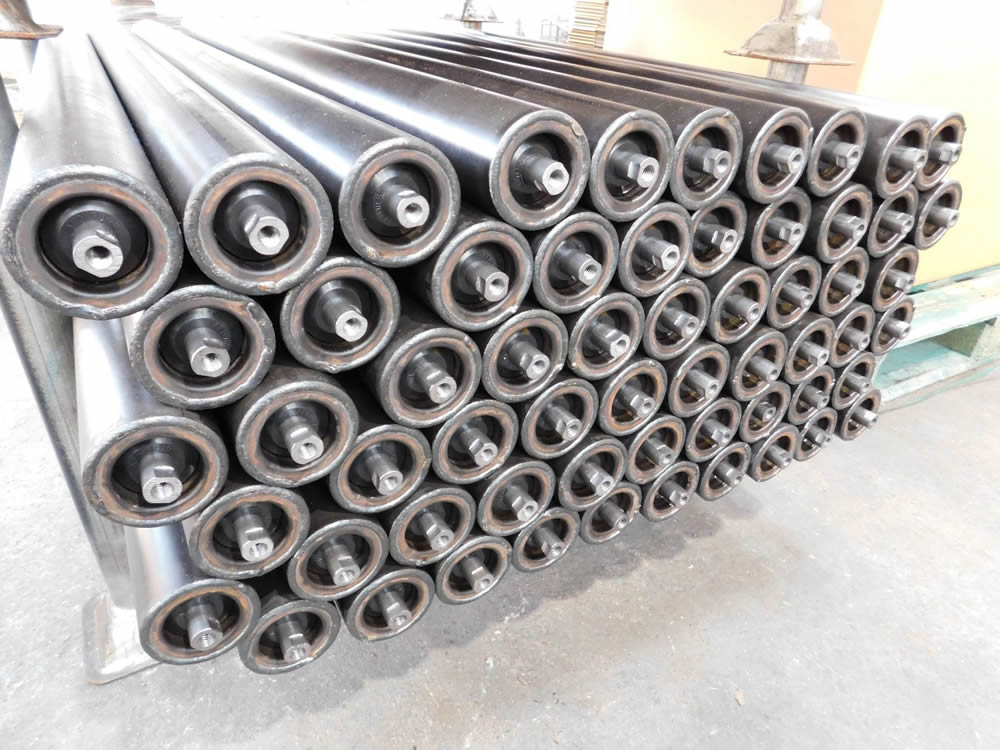Everything You Need to Know About Heavy-Duty Conveyor Rollers and Their Uses
Conveyor rollers are a key component in many industrial processes. They are used for moving materials through a production line quickly and efficiently.
Heavy duty conveyor rollers are designed to handle heavier loads and tougher conditions than standard rollers. Whether you’re looking to transport materials in a factory or a warehouse, or need to move heavy items from one location to another, these rollers can provide an effective and efficient solution.
In this blog post, we’ll provide a comprehensive review of everything you need to know about heavy duty conveyor rollers and their uses.
We’ll cover their design features, the different types of rollers, and the many ways they can be used in industrial applications. We’ll also discuss their advantages over other material handling solutions and provide tips for choosing the right roller for your needs.
By the end of this blog post, you’ll have a better understanding of how heavy duty conveyor rollers can help you save time and money.
What are Heavy Duty Conveyor Rollers?
Conveyor rollers are cylindrical or drum-shaped components with one or two grooves. These grooves are used to move materials such as plastic, paper, glass, and many other materials.
Heavy duty conveyor rollers are designed to handle heavier loads and harsher conditions than standard rollers.
They are used in a wide range of applications, including moving materials along assembly lines, transporting items through warehouses, and loading/unloading freight.
These rollers come in a wide range of designs, sizes, and types. You can choose from single or double-groove rollers, with or without teeth, and a variety of materials.
Conveyor rollers are typically made of steel, but you can also find plastic and rubber versions that can handle lighter materials.
Additionally, you can choose between open or enclosed designs depending on the application.
Design Features of Heavy Duty Conveyor Rollers
Enclosed roller – If your application requires a clean environment, you should consider an enclosed roller.
These types of rollers are made with a sealed casing that can resist corrosion, dust, and other contaminants. This design is ideal for applications that include food and pharmaceutical industries.
Open roller – In contrast, an open roller is designed with an open design that makes it easier to clean. This type of roller is best for applications that don’t require a clean environment, such as construction sites or mining operations.
Width – A roller’s width determines how much material it can move at one time. You should consider several factors when choosing a width, including the weight of the materials you plan to move, working conditions (e.g., temperature, humidity), and the length of the material you need to transport.

Types of Heavy Duty Conveyor Rollers
Single-groove – A single-groove roller is ideal for applications that don’t require a lot of gripping power. These rollers are best for light materials that need to be moved with a low degree of friction.
They are often found in food processing plants, textile and garment manufacturing companies, and other light industries.
Double-groove – A double-groove roller is designed with two grooves to provide a firmer grip, making it ideal for heavier items.
This type of roller is often used in a variety of industries, including food processing, pharmaceuticals, and other types of manufacturing.
With teeth – Some industries, such as mining, require a roller with teeth. These rollers have serrated edges to increase gripping power, which makes them an ideal solution for heavier materials.
Advantages of Heavy Duty Conveyor Rollers
Versatility – One of the best advantages of heavy duty conveyor rollers is their versatility. You can choose from a wide range of designs and types to customize your roller for a variety of applications.
This allows you to match your roller to the weight and size of your materials as well as the length and width of your conveyor.
Cost-effective – Another advantage of heavy duty conveyor rollers is their cost-effectiveness. You can choose between a wide range of roller types, including open and enclosed designs.
This allows you to match your needs while saving money on the features you don’t need.
Durability – One of the best reasons to choose heavy duty conveyor rollers is their durability. They are designed to withstand wear and tear in harsh conditions and are built to last.
This makes them an ideal solution for a wide range of applications, including loading and unloading freight, moving materials in a factory setting, and transporting materials in a warehouse setting.
Uses of Heavy Duty Conveyor Rollers
Many industries use heavy duty conveyor rollers, including the agriculture, mining, chemical, and food processing industries.
You can also find them in warehouses, construction sites, and other commercial settings. In each of these settings, roller conveyors can increase efficiency and reduce labour costs.
They allow workers to move materials quickly and easily, making it easier to perform tasks such as loading/unloading freight, sorting items, and transporting items through the warehouse.
Rollers can also be used to transport items through assembly lines, helping workers quickly move parts and finished products without needing to lift heavy loads.
Another common application is using rollers to load items onto pallets.
Tips for Choosing the Right Heavy Duty Conveyor Roller
When choosing a roller, there are several factors to consider, including the weight of the materials you plan to move, working conditions (e.g., temperature, humidity), the length of the material you need to transport, and the width of your conveyor.
You should also keep in mind the type of industry you operate in and choose a roller that meets your safety and regulatory requirements.
A wide variety of designs are available, so it can be difficult to choose one. These tips can help you find the right roller for your needs.
Safety and Maintenance of Heavy Duty Conveyor Rollers
Safety is a top priority when operating heavy duty conveyor rollers. You should always wear protective gear when working with them, including safety goggles and gloves.
Additionally, you should carefully follow all safety instructions and avoid tampering with safety devices. Rollers must also be properly maintained to avoid costly maintenance issues.
This includes cleaning your rollers regularly and inspecting them for damage. When cleaning your rollers, use a disinfectant or a biocide to kill any bacteria growing on the roller.
Finally, you should replace any worn or damaged parts to extend the life of your roller. Finally, when these rollers are in operation, the parts that move (such as the drive wheels and bearings) will experience heat and dust, which can lead to premature wear.
Proper ventilation can help reduce the amount of dust these parts experience and, thus, extend their life.
Conclusion
Conveyor rollers are a key component in many industrial processes. They are used to move materials through a production line quickly and efficiently.
Heavy duty conveyor rollers are designed to handle heavier loads and harsher conditions than standard rollers.
They come in a wide range of designs and types, and are used in a variety of industries, including agriculture, mining, chemical, and food processing.
When choosing a heavy duty conveyor roller, you should consider its design, weight, length, and width. You should also choose one that is designed to meet your safety and regulatory requirements.



